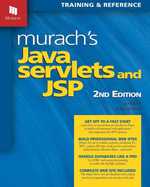- ホーム
- > 洋書
- > 英文書
- > Business / Economics
Full Description
The authors in this book analyze resilience and sustainability in seven different complex adaptive systems (human beings, megaprojects, higher education, food systems, climate change, healthcare settings and cities) by highlighting transitions from complexity to transdisciplinarity as a strategy for knowledge integration.
The book provides insights about the nature of complex adaptive systems based on the cases studied, in particular the issue of second order cybernetics (associated to the mind-matter problematic), the role of entropy in complex systems and the importance of the notion of reflexivity in the current cognitive-reflexive stage in world capitalism. In this way, the book aims at contributing to current debates and objections about the validity of traditional ontological and epistemological positions in the face of radical and rapid transformations worldwide affecting some aspects of capitalist development. The Conclusions explore how complex sustainability needs to integrate several elements beyond the conventional view expressed in the standard, anthropocentric definition of sustainability. The contributions in this book are important for anyone interested in meaningfully designing research on resilience and sustainability that uses complexity and transdisciplinary perspectives and frameworks.
Contents
Preface and Acknowledgments; Gerardo del Cerro Santamaría.
Section I: Introduction.
Chapter 1. Introduction: From Complex Systems to Transdisciplinarity; Gerardo del Cerro Santamaría.
Section II: Complex Resilience.
Chapter 2. A Transdisciplinary Approach to Resilience: Limits and Possibilities of a Psycho-Sociological Strategic Game; Jesús Romero Moñivas.
Chapter 3. Resilience, Systemic Entropy, and Disruptive Complexity: The Case of Urban Megaprojects; Gerardo del Cerro Santamaría.
Chapter 4. Complexity in Higher Education: The Resilience of Researchers in Times of a Pandemic; Luiz Síveres and Lucicleide Araújo.
Section III: Complex Sustainability.
Chapter 5. Collective Consumption and Food System Complexity: Citizen Mobilization, Territorial Rescaling, and Transformative Change; Taylor Davey and Diane E. Davis.
Chapter 6. Social Complexity and Organizational Reflexivity: Harnessing Ethical AI Surveillance for Climate Change Governmentality; Eliana Herrera-Vega.
Chapter 7. Transdisciplinary Resilience and Sustainability: Hospitality and Habitability in Healthcare Settings; Luís Gouveia, Catarina Delaunay, and Rita Morais.
Chapter 8. On Urban Complexity: A Transdisciplinary Approach for a Just Eco-Social Transition; Fernando Díaz Orueta.
Section IV: Rethinking Transdisciplinarity.
Chapter 9. Transdisciplinary Thinking: Nicolescuian, Zurich, and Brazilian Approaches; Sue L. T. McGregor.
Chapter 10. Integrative Transdisciplinarity: Explorations and Experiments in Creative Scholarship; Alfonso Montuori.
Section V: Conclusions And Implications.
Chapter 11. Conclusions: Summary of Findings and Implications; Gerardo del Cerro Santamaría.
References.
About the Contributors.
Index.








